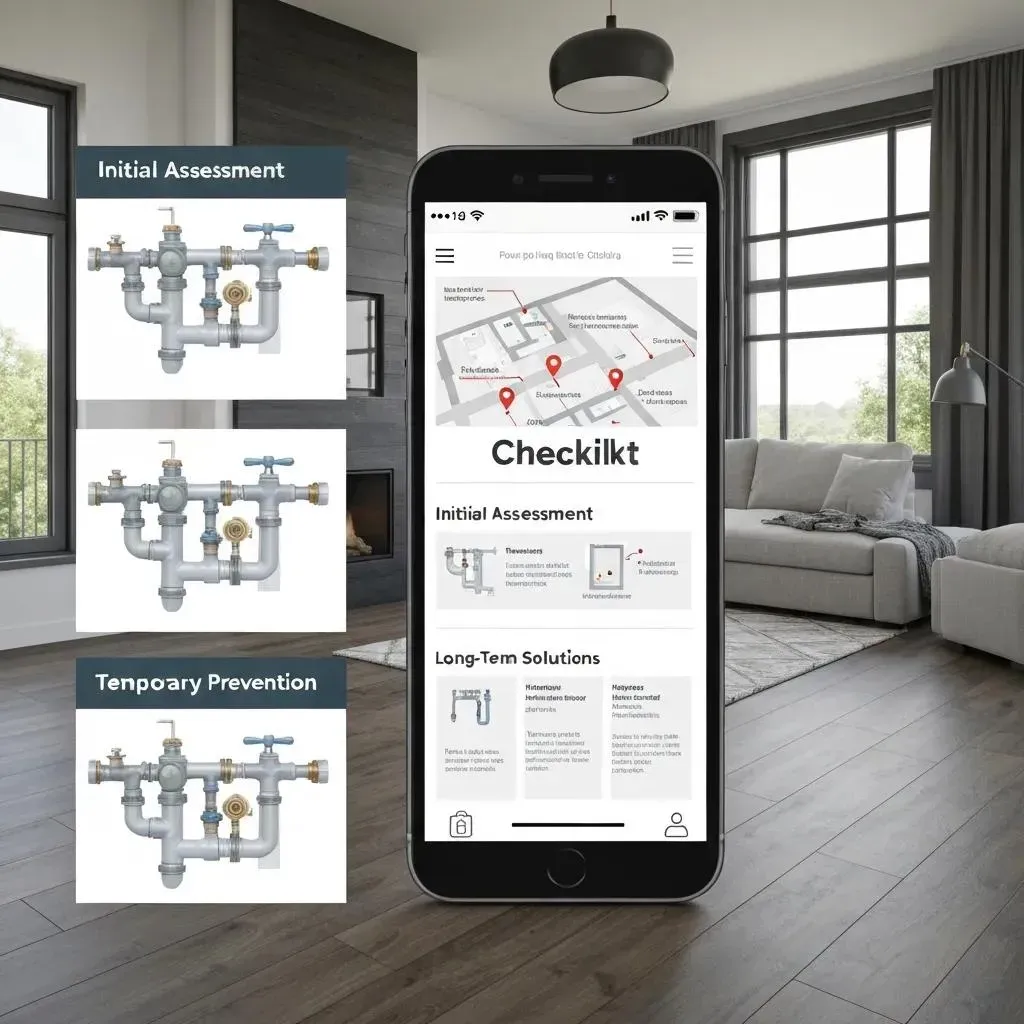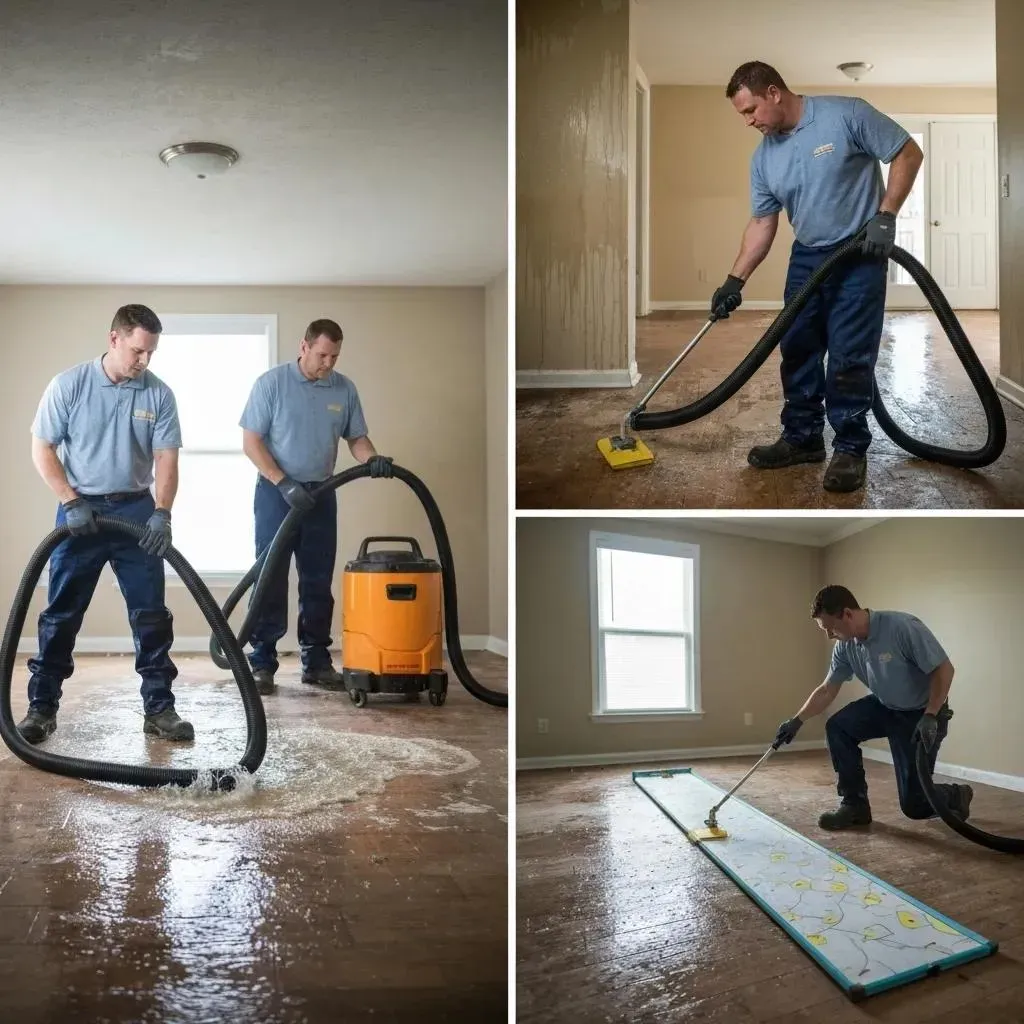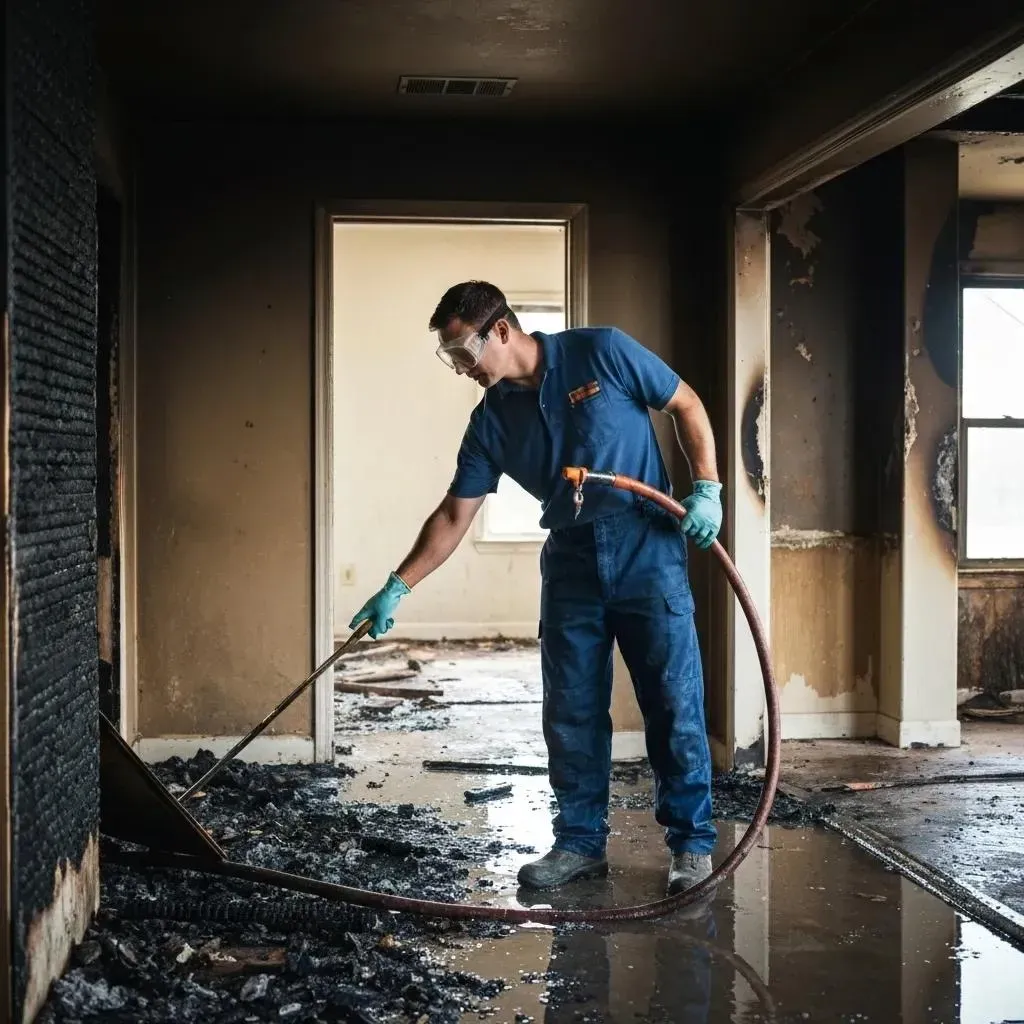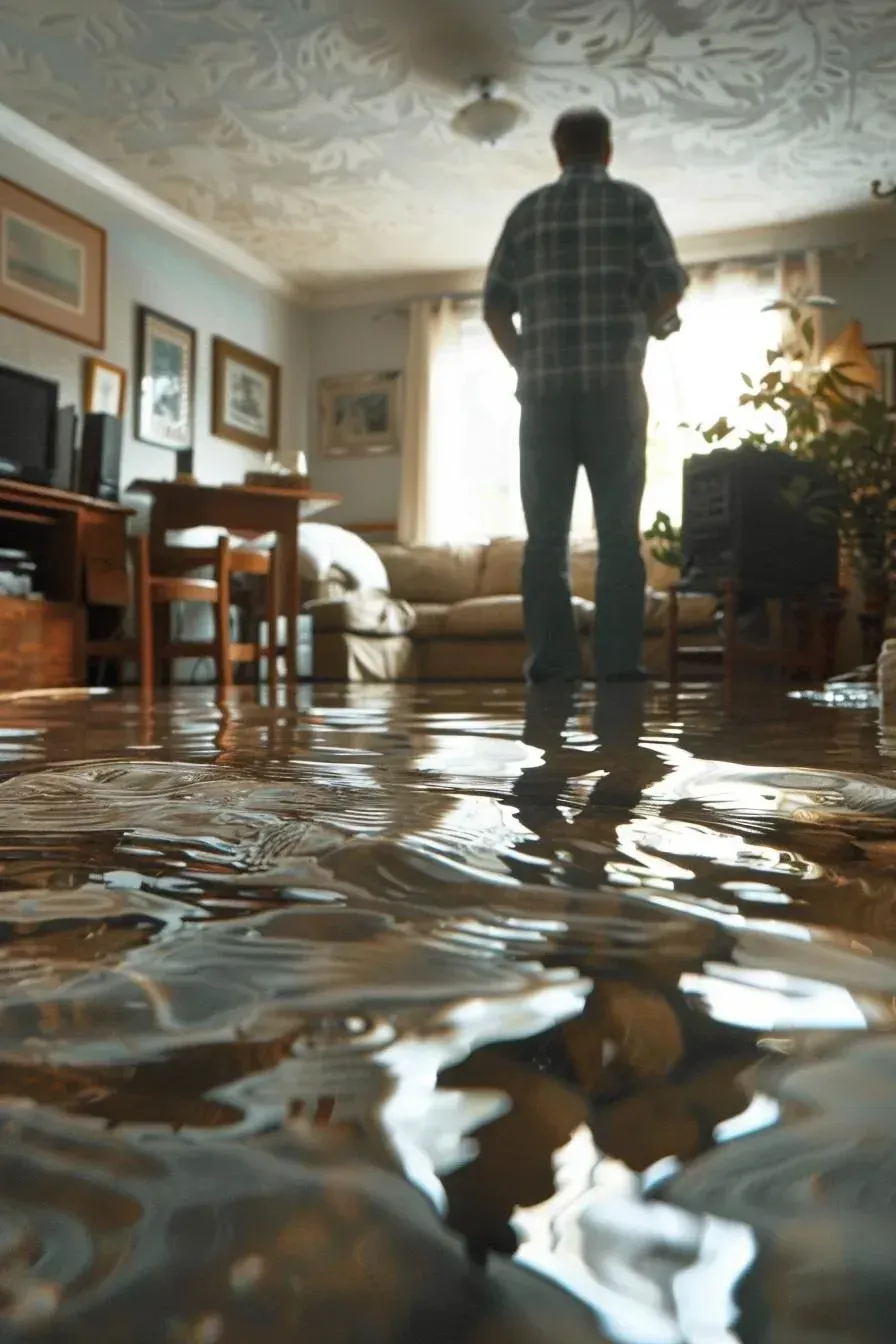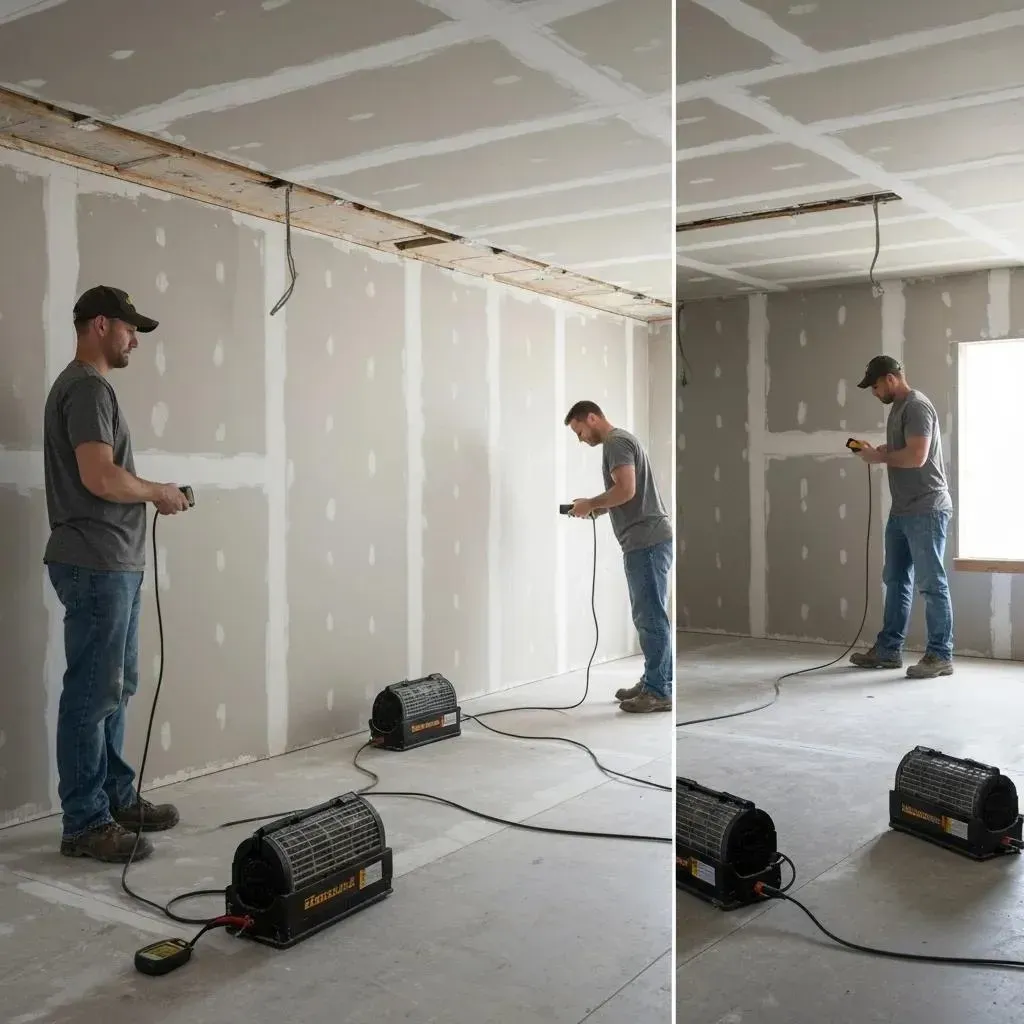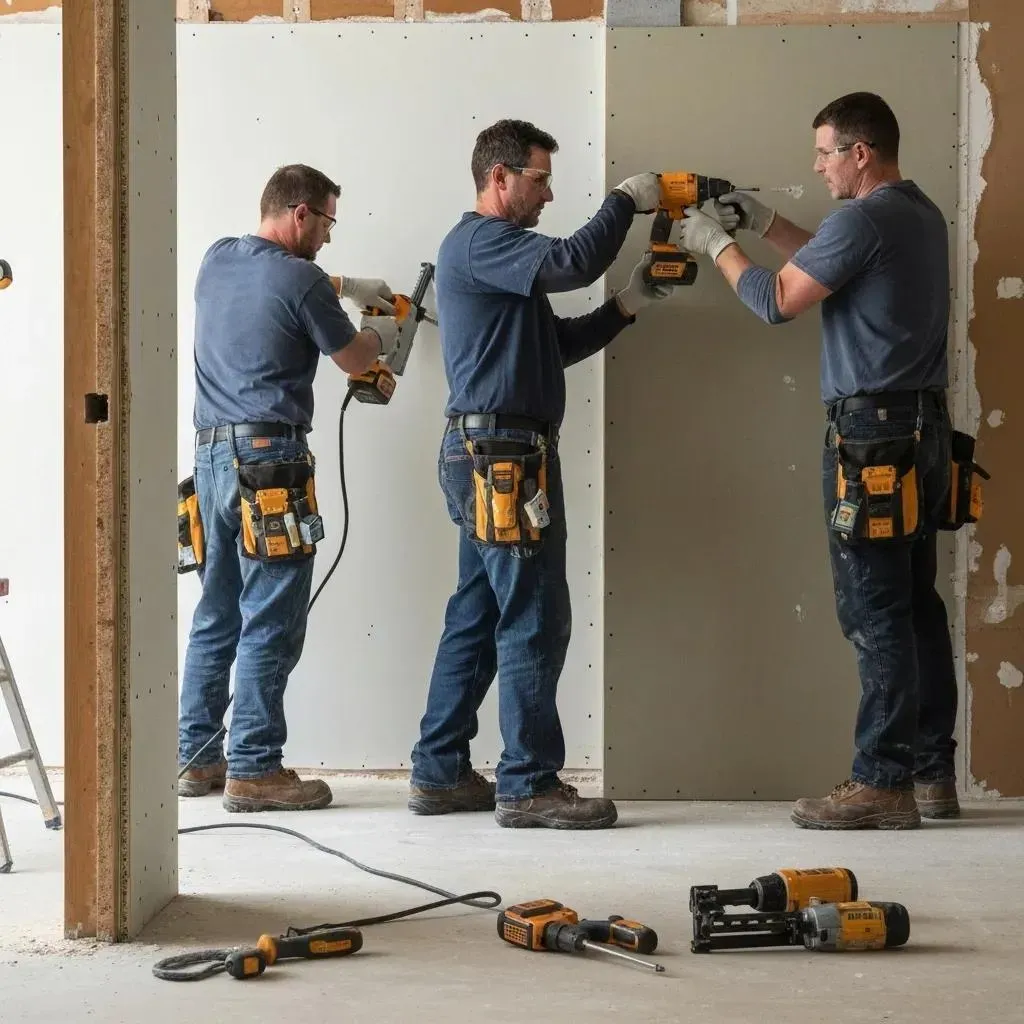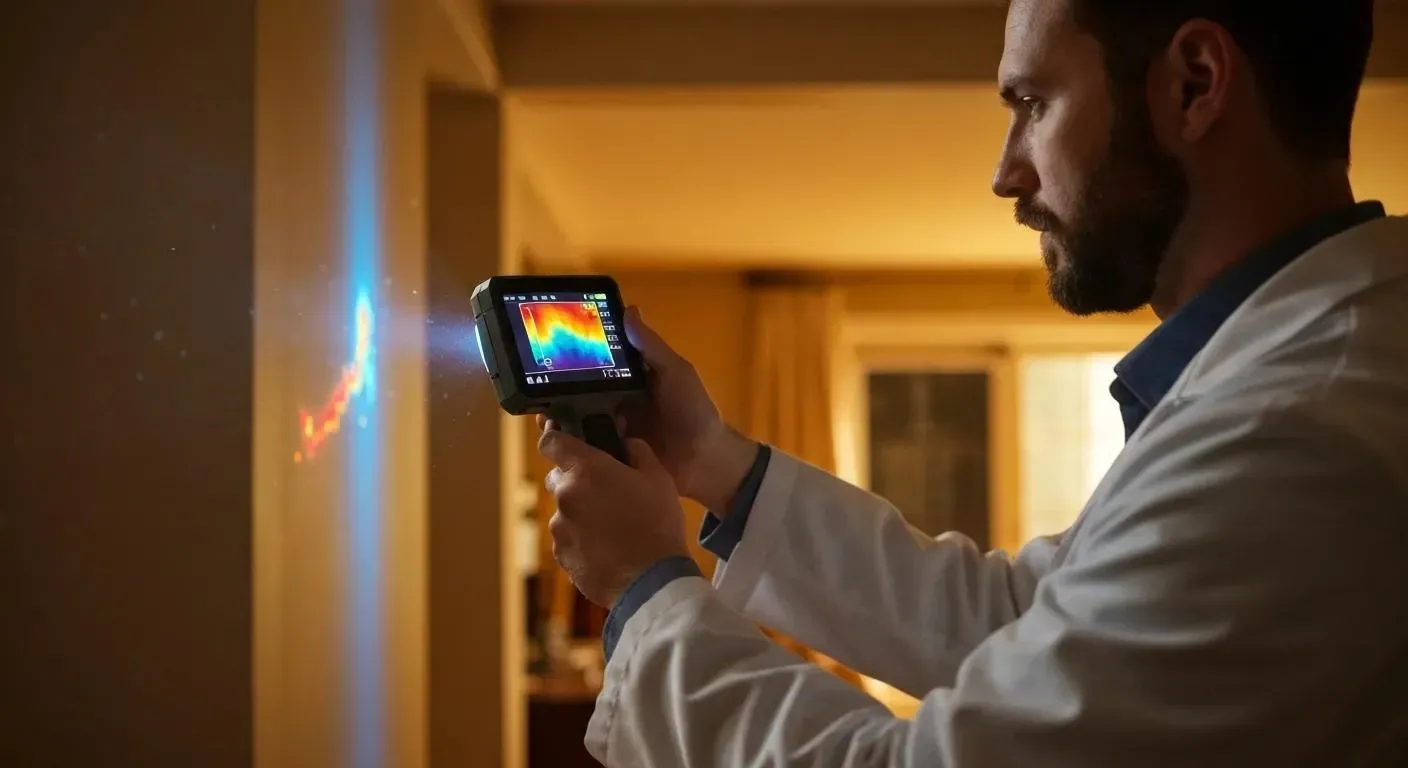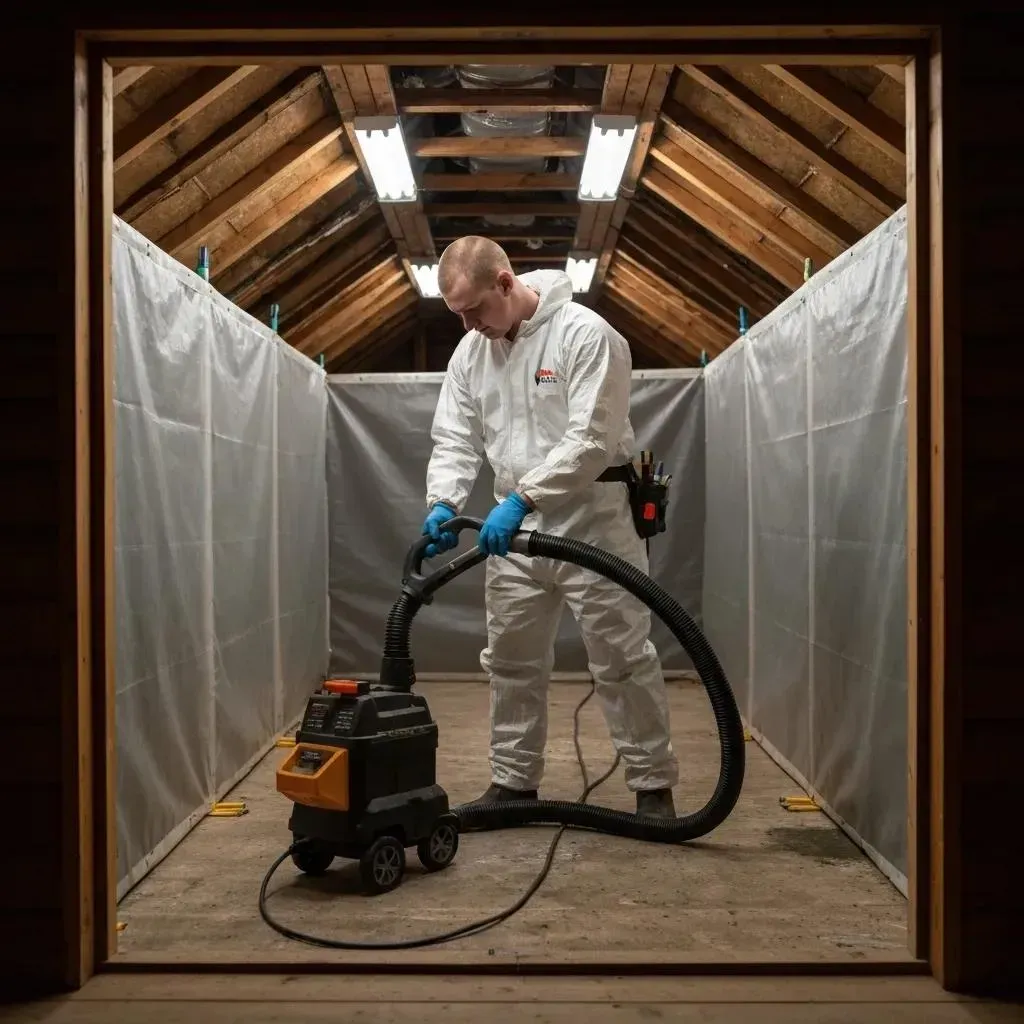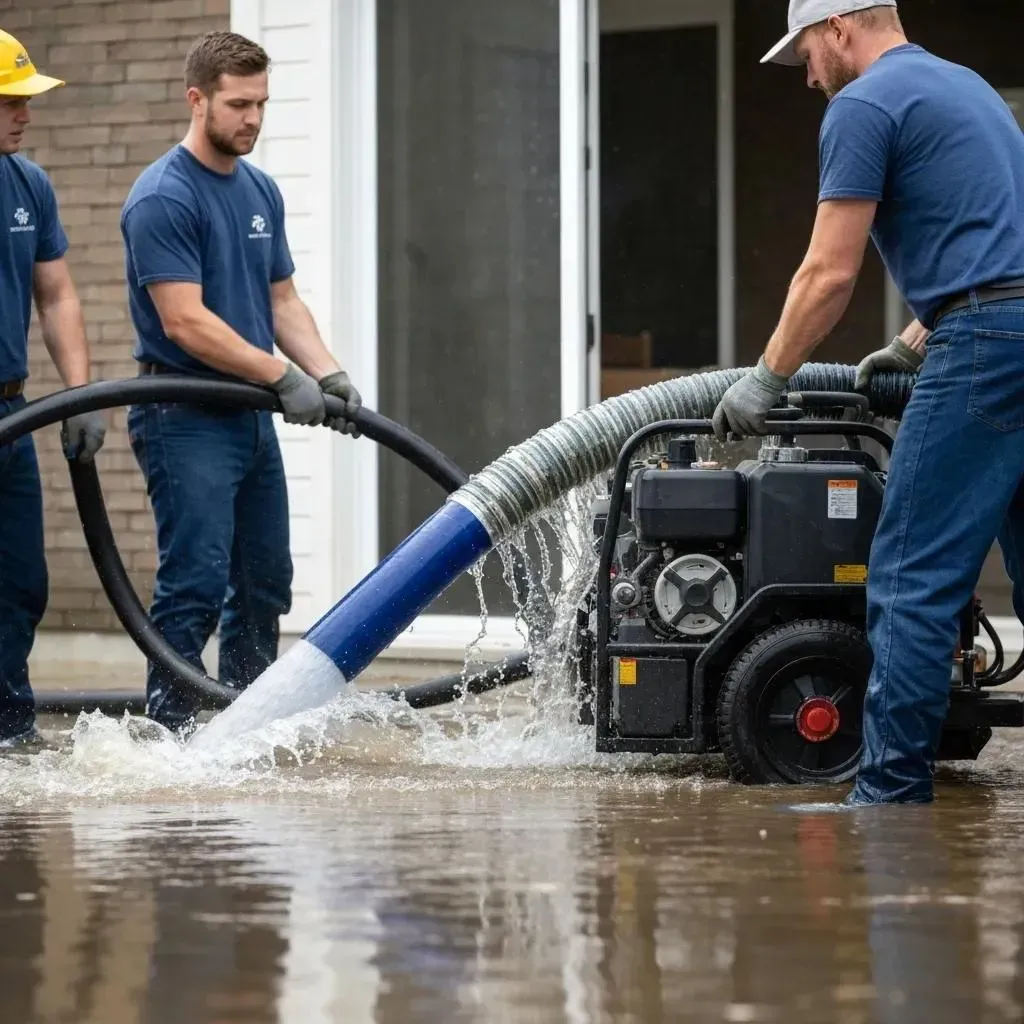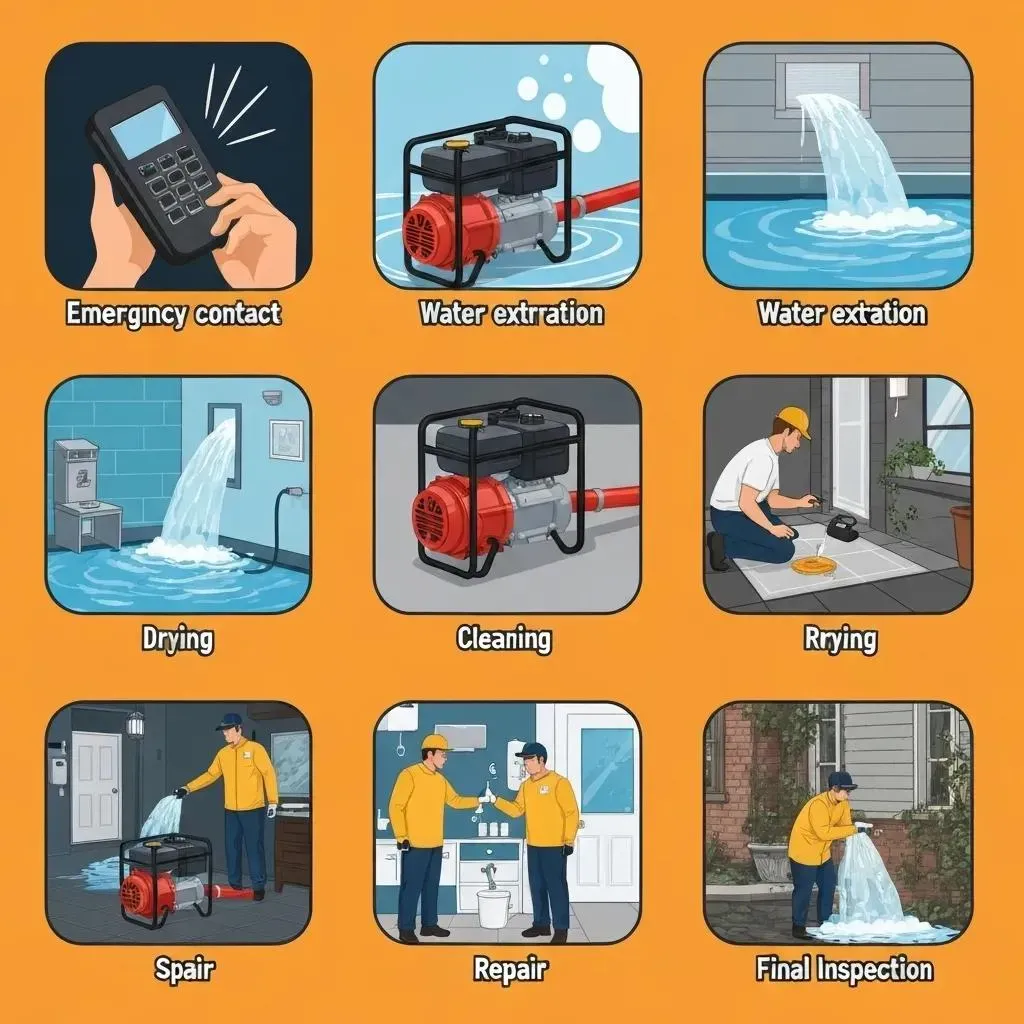Blog
Why Acting Fast on Water Damage Can Save Your Denver Home
Denver water damage repair requires immediate action to prevent mold growth, structural damage, and skyrocketing costs. Whether it's a burst pipe, basement flood, or storm damage, swift action can mean the difference between a minor inconvenience and a major disaster.
Here's what you need to know about Denver water damage repair:
- Time is critical: Mold can grow within 24-48 hours of water exposure.
- Average repair costs: These range from $2,000 to $5,000 but can exceed $10,000 for severe cases.
- Professional response time: Expect help within 60-90 minutes for emergencies.
- The repair process: This involves assessment, water extraction, drying, cleaning, and restoration.
- Insurance claims: Most incidents are covered, but proper documentation is essential.
Water damage often strikes without warning. The key to minimizing its impact is understanding what to do in those crucial first hours. As one homeowner shared after a sewer backup: "Everyone is very friendly and helpful. We would not hesitate to use them again!" This highlights the importance of finding the right team when disaster strikes.
I'm Mike Martinez, owner of Accountable Home Services. For years, my team has provided expert Denver water damage repair services to local families. We respond 24/7 because we know that water damage doesn't wait for business hours, and neither should your restoration.
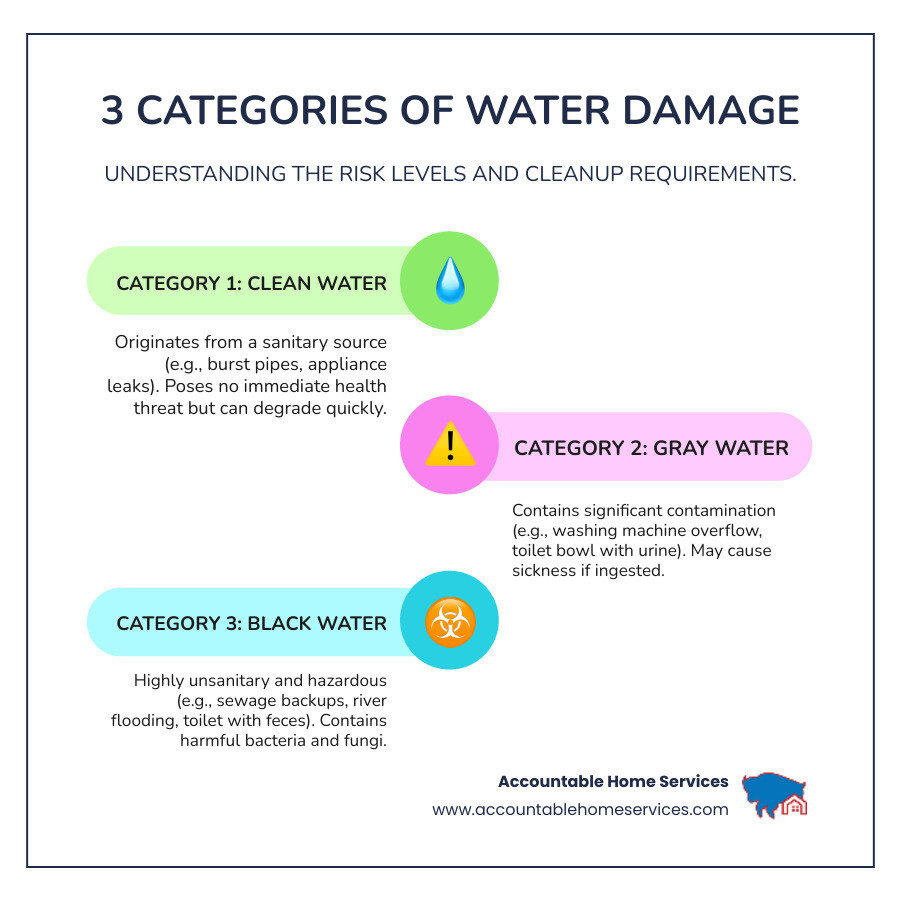
The First 24 Hours: Immediate Steps After Finding Water Damage
Finding water damage is overwhelming, but taking the right steps immediately can save you thousands and prevent health hazards. The first 24 hours are critical for successful Denver water damage repair. Once water invades, every minute counts.
Your top priority is safety. If water is near electrical outlets or appliances, turn off the electricity at your circuit breaker. Water and electricity are a deadly mix, so never take chances.
Next, stop the water at its source. For a burst pipe or overflowing appliance, find your main water shutoff valve. It's usually in the basement, crawl space, or near the water meter. I always tell Denver homeowners to learn this location before an emergency strikes.
Once the danger is controlled, document everything with photos and videos for your insurance claim. You can start removing excess water with mops and towels, but this is only a temporary fix. Complete moisture removal requires specialized equipment, which is why DIY water restoration may be riskier than hiring a pro in Denver.
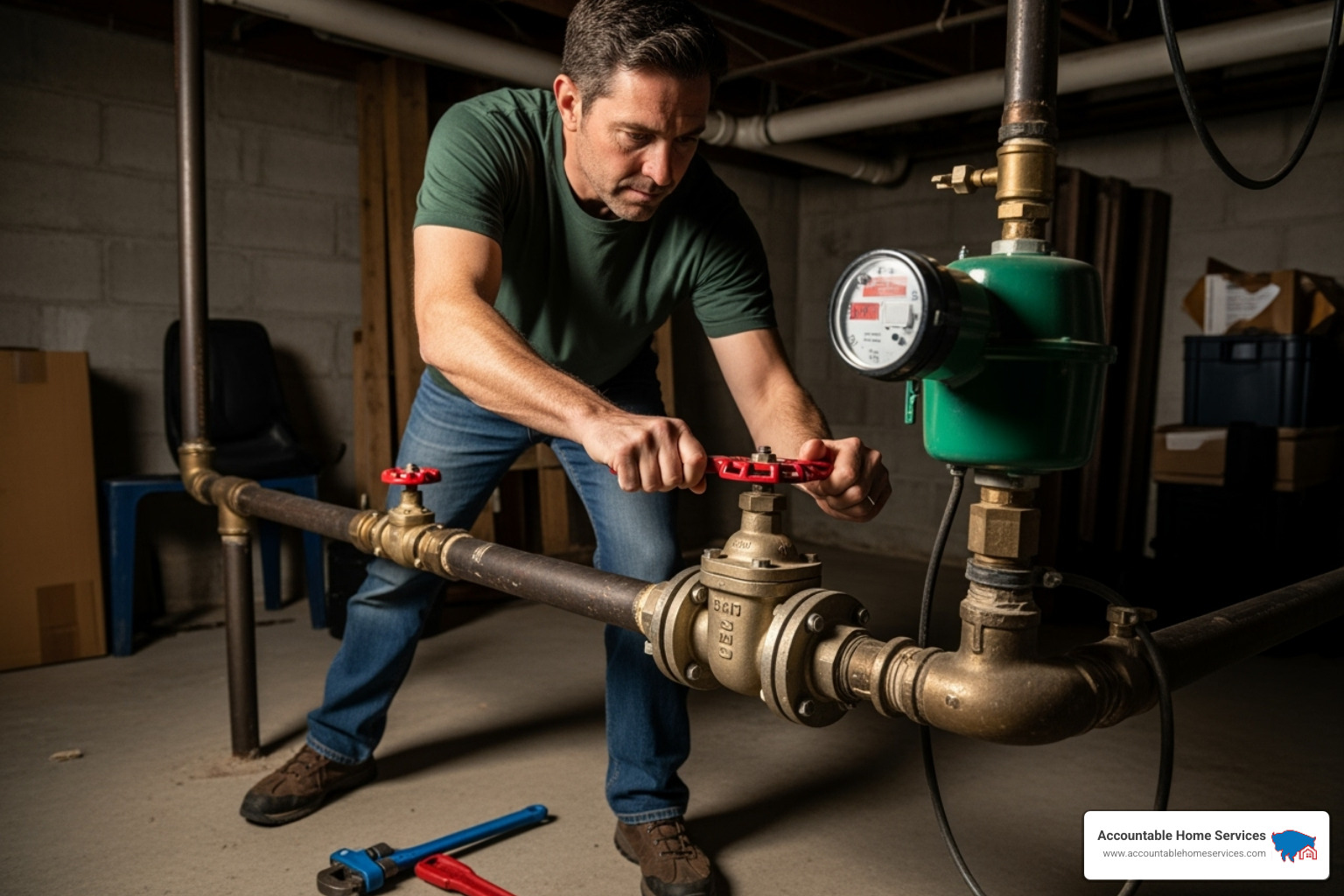
Stop the Source and Protect Your Belongings
After ensuring safety, find and operate your shutoff valve. If you can't locate it, call your water utility company. Next, move furniture and protect valuables. Get electronics, documents, and sentimental items out of the affected area. For heavy furniture, place aluminum foil or wood blocks under the legs to prevent water absorption.
While removing standing water with mops and buckets is a good first step, professional equipment is necessary for thorough extraction from carpets, padding, and subflooring. Our water damage restoration tips explain how professional methods remove far more moisture, preventing bigger problems later.
Why You Must Act Fast to Prevent Further Damage
Mold growth can begin within 24-48 hours, turning a water issue into a health hazard. The 24-48 hour window is a critical timeline that determines the scope of the damage.
Structural integrity suffers as water sits. Wood swells, drywall crumbles, and metal rusts. This secondary damage often costs more to repair than the initial problem. I've seen small leaks lead to complete room renovations because homeowners waited too long.
Water damage is progressive, traveling through walls and under floors. What looks like a small puddle can hide extensive damage. This is why water damage and restoration are critical for your Denver property. Professional restoration prevents this cascade of problems by using moisture meters and thermal imaging to find hidden water.
Every hour you wait increases the cost of restoration. A small drying job today can become a major reconstruction project tomorrow. That's why we offer 24/7 emergency response—because Denver water damage repair can't wait.
Common Causes and Signs of Water Damage in Denver Homes
Water damage isn't always a dramatic flood. Sometimes it's a sneaky drip you don't notice until the floor buckles. In my years of Denver water damage repair, I've seen water find its way into homes through every imaginable route.
Common causes include:
- Frozen and burst pipes, especially during Colorado's winters.
- Appliance leaks from dishwashers, washing machines, or water heaters.
- Sump pump failure during heavy rains or snowmelt.
- Roof leaks from damaged shingles or clogged gutters.
- Foundation issues that allow groundwater to seep in.
- Sewage backups, which pose serious health hazards.
- Flash flooding from intense summer thunderstorms.
To stay ahead of these issues, especially in winter, review our 10 essential water damage prevention tips for Denver's snowiest months.
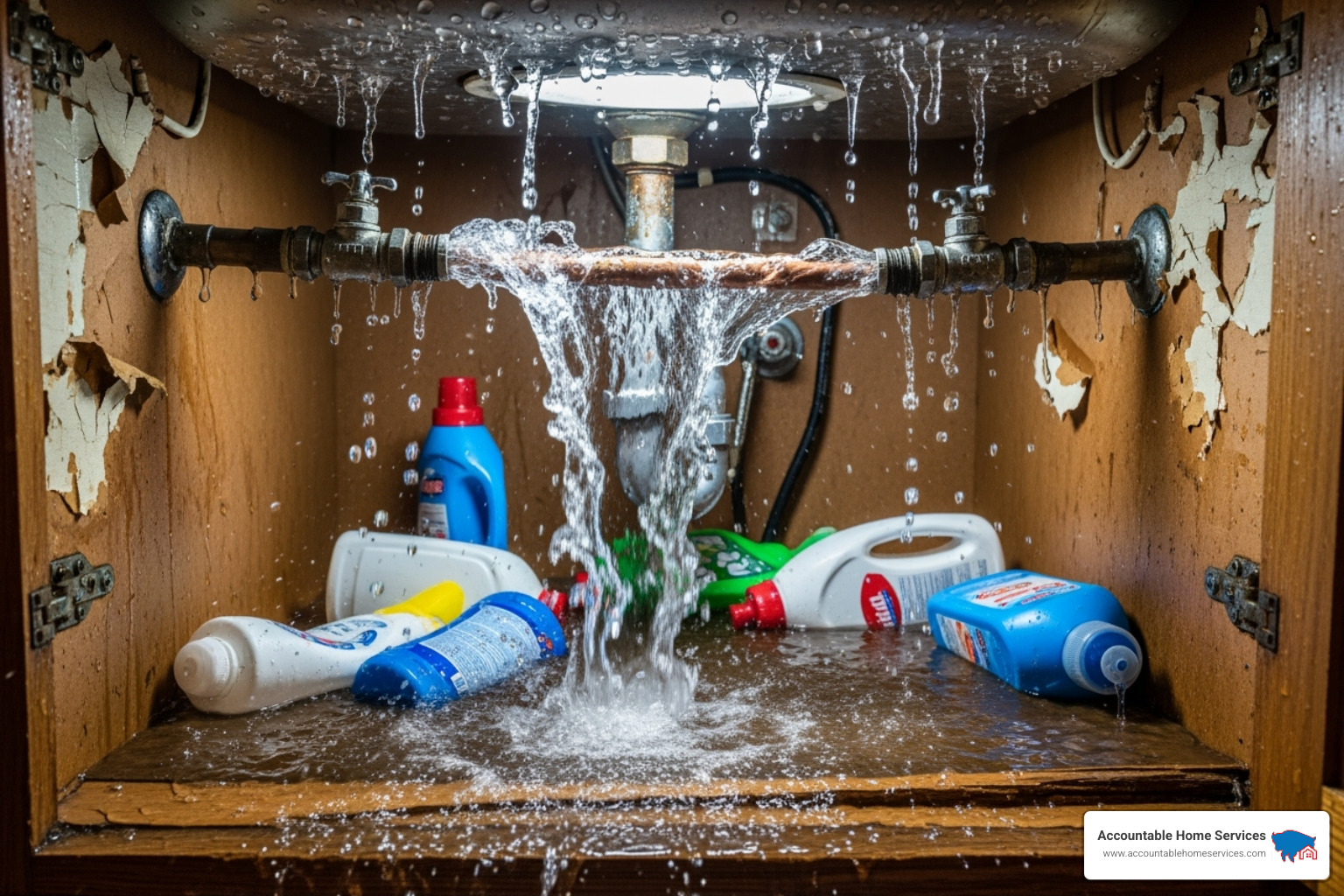
Denver-Specific Challenges: From Snowmelt to Sudden Storms
Denver's climate creates unique challenges. Heavy snowfall can lead to ice dams, which prevent proper roof drainage and cause water to back up into your attic and walls. Rapid thaws can release massive amounts of water at once, overwhelming drainage systems and flooding basements, especially if your property isn't graded correctly.
Summer brings flash flooding from intense thunderstorms that can overwhelm storm drains and send water into your home. The clay soil common in our area compounds this risk by not absorbing water quickly. For help with leaks, Denver Water provides excellent resources for troubleshooting. Our team specializes in basement water damage restoration , understanding how these unique conditions affect your home.
Identifying Hidden Leaks Before They Become Disasters
The most expensive damage often starts with the smallest leaks. By the time you see obvious signs, significant damage may have already occurred behind walls or under floors.
- Musty odors: This earthy smell often indicates mold or mildew from hidden moisture.
- Wall or ceiling stains: Brown rings or peeling paint signal water intrusion.
- Warped or buckling flooring: Cupping hardwood or bubbling vinyl suggests moisture underneath.
- Unexplained high water bills: A sudden jump in your bill can point to a hidden plumbing leak.
- Damp spots: Areas that feel consistently cool or moist indicate an ongoing problem.
Our guide on hidden water damage in Denver: here are the signs you need to look for can help you investigate. If you suspect a problem, a professional water damage home inspection can pinpoint the source before it requires extensive Denver water damage repair.
The Professional Denver Water Damage Repair Process: What to Expect
When water invades your home, you need a strategic, multi-step approach. Professional Denver water damage repair makes all the difference, using specialized equipment and proven techniques to bring your home back to its pre-damage condition.
Our certified technicians follow a clear process: we start with a thorough inspection to assess the damage, identify the water source, and categorize the water type. Next comes water removal with powerful pumps, followed by strategic drying and dehumidifying. The process continues with cleaning and sanitizing all salvageable items to prevent mold and eliminate odors. Finally, we handle restoration, rebuilding damaged structures from drywall and flooring to painting.
We adhere to strict safety standards throughout the entire process. For a detailed breakdown, review our water damage repair steps.
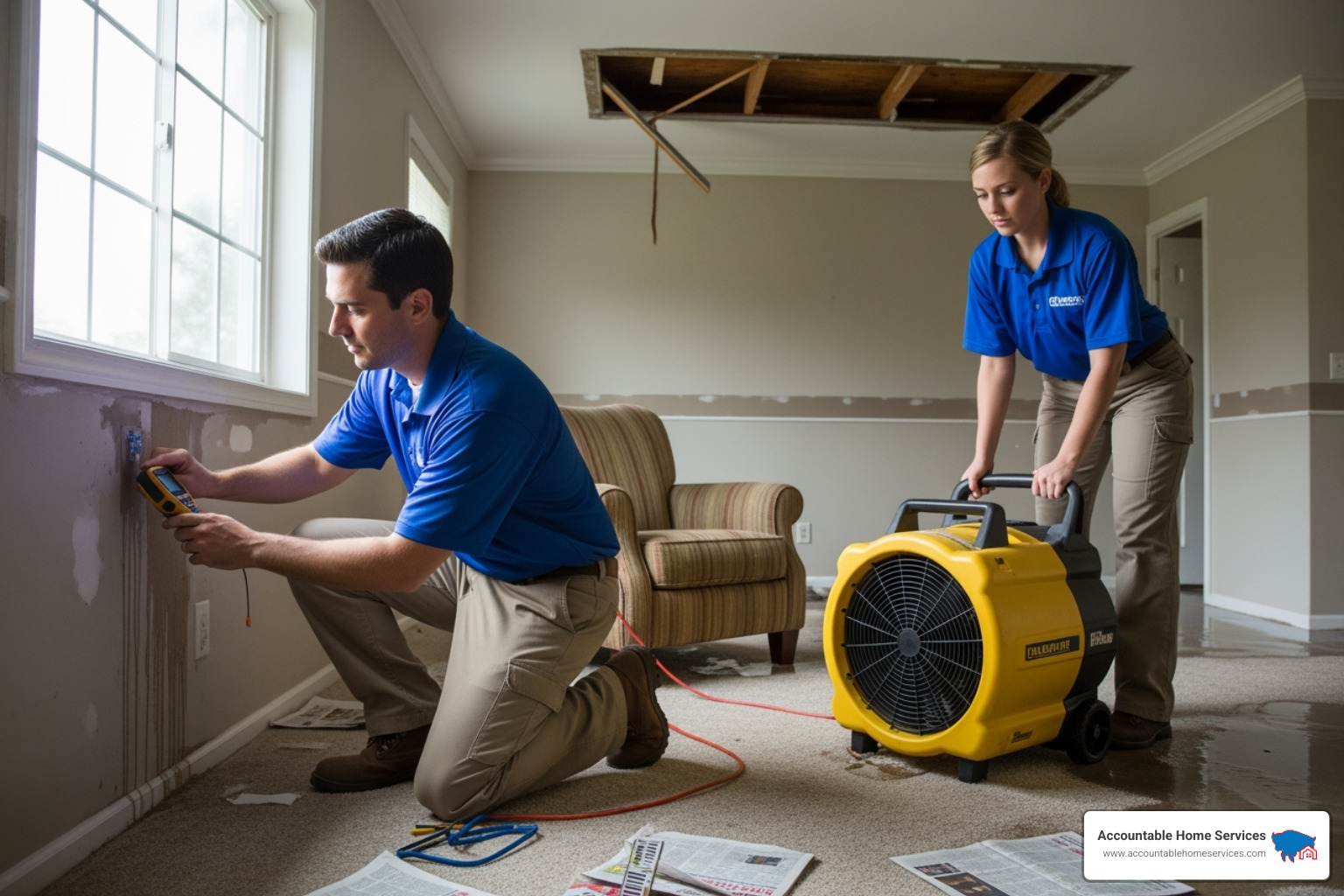
Step 1: Assessment and Water Mitigation
The first step is a high-tech assessment. Our experts use moisture meters to detect water within walls and floors and infrared cameras to reveal hidden pockets of moisture. This helps us map exactly how far the water has traveled.
Once we know the scope, we focus on water mitigation. We stop the source and then begin extraction using powerful, truck-mounted units that remove far more water than any household equipment. We may also need to remove non-salvageable materials like soaked drywall to facilitate proper drying. This rapid water mitigation process is vital to limit further damage. Learn more about what to expect during emergency water damage restoration.
Step 2: Structural Drying, Cleaning, and Mold Prevention
With the bulk water removed, we begin structural drying. We place industrial air movers to create powerful airflow and accelerate evaporation. Commercial-grade dehumidifiers pull moisture from the air, ensuring that hidden moisture within wood framing, subfloors, and wall cavities is thoroughly dried. Proper structural drying is your best defense against warping, swelling, and mold.
Next, we clean and sanitize, applying professional-grade antimicrobial treatments to prevent mold and bacterial growth. If mold is already present or the water was contaminated, our sewage cleanup and mold removal Denver Colorado services are essential. We use advanced techniques to ensure your home is clean and healthy, giving you complete peace of mind.
Navigating the Aftermath: Insurance, Costs, and Timelines
Once your home is drying, you're likely wondering about the financial side. Dealing with insurance claims can be stressful, but understanding the process and having the right team on your side makes it much smoother. Denver water damage repair costs vary dramatically, from around $2,000 for a simple overflow to $10,000 or more for major flooding.
For a detailed breakdown, check out how much does water damage restoration cost in Denver CO. Knowledge is power when dealing with adjusters and estimates.
| Damage Level | Description | Typical Timeline (Cleanup & Drying) | Total Restoration (with repairs) |
|---|---|---|---|
| Small Leak | Isolated area, clean water (e.g., sink overflow) | 2-3 days | 1-2 weeks |
| Moderate Leak | Larger area, clean/gray water, some structural impact (e.g., appliance leak) | 3-5 days | 2-4 weeks |
| Major Flood/Burst | Extensive area, significant standing water, black water likely (e.g., flood) | 5-10+ days | Several weeks to months |
How to Handle Your Homeowner's Insurance Claim for Denver Water Damage Repair
Most homeowner's insurance policies cover sudden and accidental water damage, like a burst pipe or a washing machine flood. However, they typically don't cover gradual damage from neglect or flood damage from external sources, which requires separate flood insurance.
We simplify the claims process by working with insurance companies for years. Documentation is crucial, and we provide the detailed photos, moisture readings, and drying logs that adjusters need. A key advantage of working with us is our direct insurance billing. We handle the paperwork and communicate with your carrier, so you don't have to pay out of pocket and wait for reimbursement.
Our team speaks "insurance language" and advocates for your best interests. For more on this, read what every Denver CO homeowner needs to know about water damage insurance claims.
Factors That Influence the Cost and Duration of Repairs
The cost and timeline of your repair depend on several factors. The water category is a major one: Clean water (Category 1) is simplest to handle, while Gray water (Category 2) requires more disinfection, and Black water (Category 3) from sewage requires specialized handling and disposal of contaminated materials.
The extent of damage and materials affected also play a role. A small leak is less complex than a multi-level flood, and restoring hardwood is more difficult than carpet. However, the biggest factor is time elapsed since the incident. Water damage gets more expensive the longer it sits. A small cleanup can quickly become a major restoration if mold grows or structural damage occurs.
The timeline for Denver water damage repair depends on these same factors. Understanding how long water damage restoration in Denver really takes helps set realistic expectations. The sooner you call, the lower your costs and the shorter your timeline will be.
How to Choose a Reputable Denver Water Damage Repair Company
When your home is damaged, you're vulnerable. Choosing the right partner for Denver water damage repair is about finding trustworthy professionals who will guide you through the process. Not all restoration companies are equal; some cut corners, leaving you with bigger problems later.
As a family-owned company serving the Denver Metro Area, we believe in helping homeowners understand what qualifications matter most when selecting a restoration company.
Verify Credentials and Experience
Look for key credentials that separate professionals from amateurs. IICRC certification is essential, as it represents rigorous training in industry best practices. Our technicians are IICRC-certified, proving their expertise.
Ensure any company is licensed, bonded, and insured. This protects you from liability and confirms you're working with a legitimate business. Local experience is also critical. Our team understands Denver's unique climate, from freeze-thaw cycles to rapid snowmelt, which helps us work more efficiently.
Years in business indicate reliability. A company with a long history has proven its value to the community. Our Denver water damage specialists have deep roots in communities like Broomfield, Westminster, Thornton, Northglenn, Arvada, Boulder, Longmont, and Erie.
Check Reviews and Ask for a Detailed Estimate
Before deciding, do your research. Google reviews and BBB ratings offer valuable insights into a company's customer service and professionalism. Pay attention to how they treat their customers.
When you contact potential companies, ask for a detailed, itemized estimate. A reputable company will provide transparent pricing and a clear scope of work. We offer no-obligation estimates so you understand the costs upfront. The estimate should prevent surprises and ensure everyone has the same expectations. A vague estimate or high-pressure sales tactics are red flags.
The cheapest option isn't always the best value. Quality restoration requires skilled technicians and professional equipment. Cutting corners often leads to bigger problems later. For more guidance, check out our complete guide on how to handle emergency water damage in Denver: a complete guide.
Conclusion: Taking Back Your Home with Confidence
When water invades your home, it can feel like your safe haven has been turned upside down. But remember: you're not powerless in this situation.
This guide has walked you through the essential steps, empowering you with the knowledge that quick action makes all the difference. You now know how to shut off your water main, document damage, and recognize warning signs before small leaks become major disasters. You also understand why professional Denver water damage repair is critical, from specialized equipment to navigating insurance claims.
Most importantly, you don't have to face this alone. At Accountable Home Services, we've helped Denver families steer these challenges for years. We understand the pressures of Colorado's climate, from burst pipes to basement flooding. Our certified technicians arrive with not just industrial-grade equipment, but with compassion.
We're here to restore your peace of mind. We work directly with your insurance company, handle the paperwork, and keep you informed, taking the burden off your shoulders. Water damage doesn't have to win. With the right knowledge and trusted professionals, you can take back control.
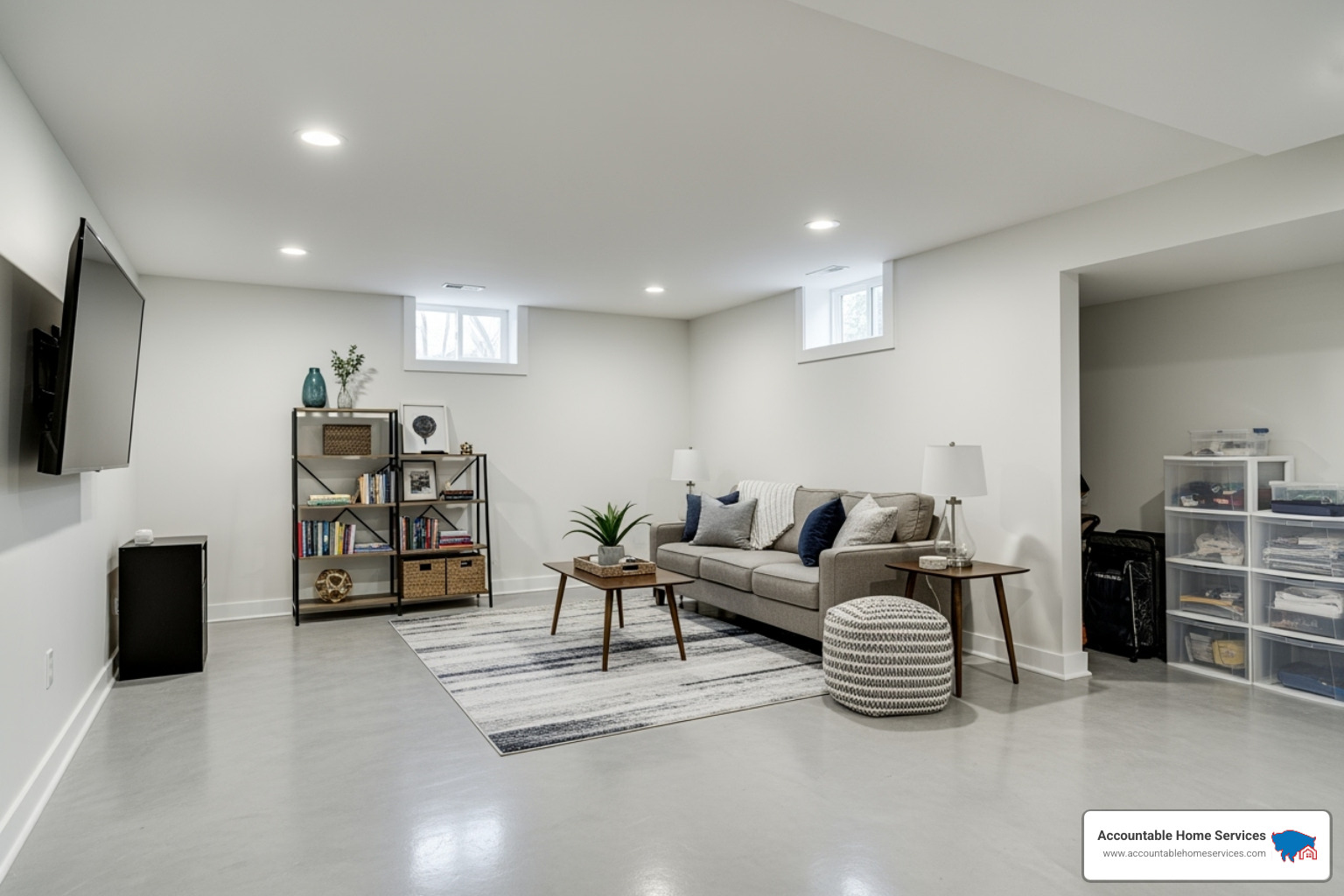
If you're dealing with water damage or suspect hidden moisture, don't wait—every hour counts. For expert help identifying the source of water intrusion, contact us for a professional Leak Detection Service in Denver. We're ready to help you reclaim your home with confidence.

